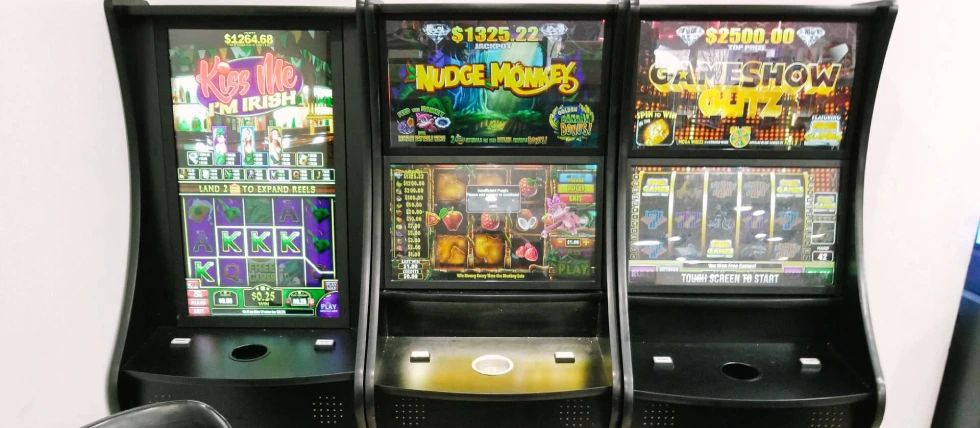Jury Orders $15.3m Against Pace-O-Matic in Convenience-Store Murder Case
A Philadelphia jury has awarded $15.3 million to the estate of a convenience-store worker who was shot while making cash payouts from unregulated "skill" gambling machines.

The verdict, announced Tuesday in Philadelphia County, found unregulated gambling operator Pace-O-Matic and its manufacturing partner Miele Manufacturing negligent in the 2020 killing of 50-year-old Ashokkumar Patel. Patel, an immigrant from India who worked at a Pennsylvania Skill location in Hazleton, was shot and killed on December 12, 2020 while mopping the store floor after having made large cash payouts on the property’s game devices.
Saltz Mongeluzzi Bendesky, the law firm representing Patel’s estate, argued that the companies built and distributed a nationwide network of so-called skill-game devices without providing the same security protocols required for state-licensed casinos and certain truck-stop gaming facilities. Attorneys said the defendants prioritized expanding machine distribution and profitability over reasonably foreseeable safety measures that could have reduced the risk of robbery and employee harm.
"Pace-O-Matic created a staggering enterprise in Pennsylvania, and was entirely focused on increasing its bottom line rather than protecting vulnerable, low-wage workers who had to make large payouts without any security measures to protect them from foreseeable risks", said Robert W. Zimmerman of Saltz Mongeluzzi Bendesky, who tried the case along with colleague John Lang. "On behalf of the Patel family, we hope Pace-O-Matic listens to the jury’s clear verdict that placing profits over safety can and does lead to dangerous consequences."
During the trial, plaintiffs emphasized the company’s distribution model: machines designed and manufactured by Miele and branded by Pace-O-Matic operate in thousands of locations across Pennsylvania. Unlike licensed casinos, these independent storefronts are not subject to standardized safety rules such as mandatory surveillance coverage, cashier-protected payout windows, or cash-handling protocols enforced by the Pennsylvania Gaming Control Board for regulated venues.
Legal and Regulatory Fallout
The civil judgement comes amid criminal scrutiny of the same business model. In October, Pennsylvania’s attorney general charged Ricky Goodling, a former national compliance director for Pace-O-Matic, with racketeering and related offenses following a multi-year undercover investigation by the Pennsylvania State Police. Prosecutors allege Goodling accepted more than $500,000 in kickbacks to suppress complaints about illegal gaming devices and assisted distributors in obtaining machines to shield them from law enforcement attention.
While the criminal case proceeds separately, the civil verdict increases pressure on state authorities and legislators to confront the gap between regulated gaming and the proliferation of skill-style machines. Lawmakers in Harrisburg and the Attorney General’s Office have faced repeated calls to tighten enforcement or craft new legislation to close legal loopholes that allow such devices to be marketed as "skill" products despite consumer confusion.
A 2023 consumer survey conducted by the American Gaming Association found that 65% of respondents familiar with skill machines said they are indistinguishable from traditional slot machines, and 56% believed the devices increase the risk of crime and danger to employees and customers at host businesses.
More Regulation
Industry Reaction and Safety Concerns
The ruling is likely to reverberate beyond this single estate claim. Civil lawyers say the judgment could encourage more wrongful-death and negligence suits against operators and manufacturers that supply unregulated gaming networks. Regulators and public-safety advocates have long warned that businesses hosting high-cash payout devices without mandated security measures expose low-wage employees to significant risk.
Industry trade groups and some machine manufacturers argue that many skill games are legitimate consumer products and that host businesses can adopt voluntary safety measures. But plaintiffs’ attorneys and victim advocates counter that voluntary standards are insufficient when the underlying business model depends on large, unsecured cash transactions at thousands of scattered retail sites.
For the Patel family, the verdict represents legal recognition of a preventable loss. For Pennsylvania policymakers and law enforcement, it underscores an unresolved tension between rapid device proliferation and the slower pace of regulatory oversight.
RELATED TOPICS: Regulation
Most Read
Must Read
 Interviews
Interviews
Exclusive Interview: Levon Nikoghosyan Shares AffPapa Winning Formula for Successful iGaming Events
Dec 03, 2025 Interviews
Interviews






Review this New Post
Leave a Comment
User Comments
Comments for Jury Orders $15.3m Against Pace-O-Matic in Convenience-Store Murder Case